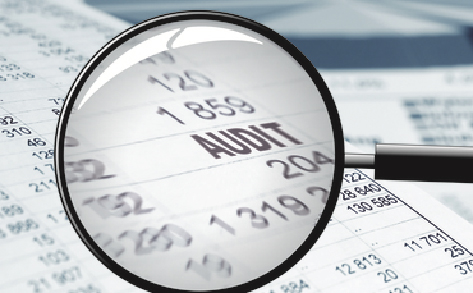Have you ever desperately tried to avoid someone at a cocktail party? Perhaps the guy who means well but asks nitpicky questions and won’t leave you alone? For accounting professionals, that party pariah is an auditor, and you should do everything you can to avoid him (or her).
Unfortunately, sneaking off to the bathroom or pretending to answer a phone call won’t forestall an auditor. They are trained to spot inconsistencies and fire off rounds of questions until they are satisfied. Anything that attracts an auditor’s attention may unearth discrepancies unrelated to the original problem. Whether you represent clients or manage taxes in-house, an audit will be far more painful than a tedious cocktail party conversation.
Besides flagrant errors and intentional lies, five innocent mistakes often attract the attention of the state. Should you make one of these mistakes, you need an “audit trail” and filing record ready to prevent the initial investigation from becoming a full-blown audit. Let’s cover the red flags first and disaster prevention second.
- Exemptions
Using software, state revenue departments can now parse tax returns without any manual work. They automatically flag inconsistencies and oddities for further investigation. Exemptions stand out like lightning bolts.
If you select the reason for an “Exemption” as “Other”, expect to receive a request for an explanation shortly after you submit the return. Likewise, if a disproportionate percentage of your sales are tax exempt, expect questions. If your clients are primarily government or nonprofit organizations, your audit trail (to be discussed) may spare you from an audit.
- Occasional Filing
Many states permit out-of-state business to file sales taxes as an occasional seller. For example, in Oklahoma, if you sell in the state once or twice per year, you need only file for those sales.
Despite what’s written in the law books, many states now deny occasional filings or automatically register occasional filers. Besides increasing the chances that you miss a filing deadline or make errors, your attempt to file as an occasional seller invites suspicion. Consider filing as a regular business even if you might qualify as an occasional seller.
- Handwritten Returns
With a handwritten return, there is a chance you will mess up calculations or input the wrong data, no matter how experienced you are. Software is not perfect, but it eliminates many human mistakes, like forgetting to write a signature. Harmless errors or unreadable handwriting can cause an auditor to review your return. You never know what he will find.
- Tax Credits Versus Amended Returns
When customers return lots of goods, especially after the holiday season, many businesses will apply the taxes paid as credit in a future filing (presuming the tax rate didn’t change in the interim).
However, if returns amount to an unusually high percentage of your monthly revenue, applying a tax credit will cause suspicion. Even if you calculated your tax credits accurately, auditors will sniff for other oddities. Once again, an innocent error may trigger a full-blown audit.
- Large Refunds
Most states have an undeclared threshold for tax refunds. If you’ve filed for a $500 tax refund in the past, and one day you request a $5,000 refund, auditors will review it. Make sure that you have all the documents necessary to support the request for refund – the credit memo to the customer, the issued check and so forth. You will be asked to submit them to support the request for refund.
Preparing for the Worst
No matter how discreet you are, the party pariah might corner you anyway. Here’s the good news about auditors though: they are fair and listen. They’re not trying to nail you. If you’re courteous, professional and timely, auditors will treat you respectfully. The key is to be prepared for any questions and they may ask.
To do this, create an “audit trail.” Meticulously document every sale your client or company makes. Assume that an auditor will ask to see how you calculated sales tax on each transaction. This is particularly important if you have exempt sales. Be prepared to show exemption certificates, information about the buyer and other documents that validate the exemption.
Most business owners print their return, cut a check, put a stamp on the envelope and consider their filing obligation complete. That’s not sufficient. For every sales tax filing, collect proof that you filed the return and paid the right amount of money. You also need proof of when the return was filed and when the payment cleared (e.g. from your online banking portal). Since state revenue departments may process your tax return late even if you submitted it on time, have a certificate of mailing or electronic record that shows when it was sent.
Bottom line: be inconspicuous, but be gracious if you get approached by an auditor. Party pariahs never run out of questions, but auditors do.
———-
Jonathan Barsade is the CEO of Exactor, a provider of sales tax and VAT solutions.
Thanks for reading CPA Practice Advisor!
Subscribe Already registered? Log In
Need more information? Read the FAQs
Tags: Sales Tax




